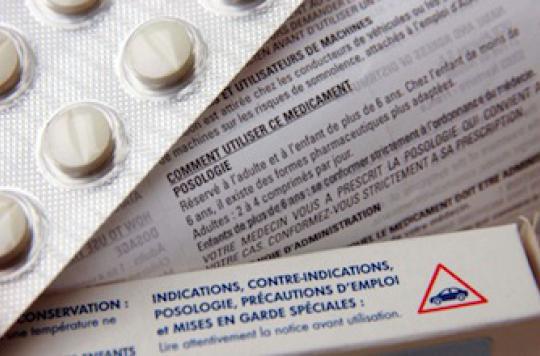Side effects of drugs cause at least 18,000 deaths each year in France, says Dr Bernard Bégaud. This is partly to blame for poor information from doctors.

“Each year there are 18,000 deaths directly linked to the taking of drugs,” Professor Bernard Begaud immediately indicated at the Mediator trial. In charge of a mission aimed at developing a pharmacosurveillance system for prescriptions following this affair and that of new generation pills, the pharmacologist gave several reasons to explain this figure which challenges.
Professor Bernard Begaud first of all explained that “although many cases are inevitable, a third of these deaths correspond to prescriptions which are not justified”. The head of an Inserm unit also suggested that French doctors did not know enough about the adverse effects of drugs. And recalled that “the alerts on the adverse effects of a drug come to 85% of hospitals and only to 15% of liberal doctors”, because “they are poorly trained in pharmacology”, he lamented.
A recent study conducted with 255 doctors practicing in Vancouver, Montreal, Sacramento and Toulouse confirms Professor Bernard Begaud’s observation. The authors of this publication looked at the quality of the information provided by medical representatives to doctors. She makes a comparison between these different cities.
Regarding the frequency with which side effects are mentioned, France obtains the best percentage. But this frequency is only 61%, against 39% for Sacramento and 34% for Canadian cities. As for severe severe accidents, for these towns, they are only mentioned in 5 to 6% of cases. However, the doctors questioned declared themselves ready to prescribe in 64% of cases. Figures that lead the authors of the study to wonder: is the patient adequately protected?
In an attempt to improve the system, the World Health Organization calls for more objective information from medical representatives. According to the 2004 medical check-up charter, medical representatives have in fact the obligation to “ensure the knowledge of the doctor”, which implies to inform them about “all the regulatory and pharmacotherapeutic aspects relating to the drug presented. “, In particular” side effects “. At the beginning of April, the High Authority for Health (Has) posted the translation of a document from the WHO, entitled “Understanding and responding to pharmaceutical promotion”.
The document points out, in particular, that “there is often a lack of balance in the level of information provided, the emphasis being more on the so-called benefits of the company’s product than on the potential risks. associated with this drug. The sales representatives may omit to mention side effects, contraindications and interactions ”.
The modernization of the medical examination is also part of one of the reform projects of the Leem Deontovigilance Committee, the professional organization which brings together drug companies. For Pascal Le Guyader, director of industrial, social and training affairs at Leem, the figures emerging from the study are not acceptable and “should be 100%”. “The doctor does not have to ask the question, it is up to the medical visitor to give the side or undesirable effects”, he concludes.
.















